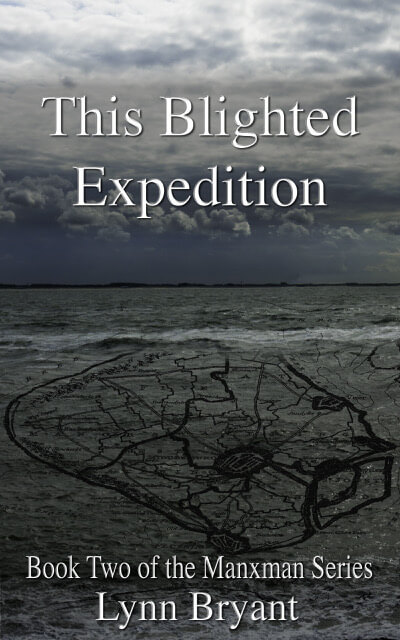This week’s blog features a guest post by Lynn Bryant, whose wonderful book, An Unwilling Alliance, was reviewed here on Tuesday.
Wellington and Chatham: writing real people
I’d like to thank Tom Williams for inviting me onto his blog today, to talk about the joys and challenges of writing about real people from the past. As an author of historical fiction, it seems to me that there are distinct sub-divisions within the genre.
Some authors take historical characters and fictionalise their lives. Sharon Kay Penman is an excellent example of this; the main characters of her books are people like Simon de Montfort or Richard the Third, and she does a brilliant job of turning the story of their lives into vivid and believable fiction. Other authors choose to create an entirely fictional world, populated by people they have created, and do not introduce any actual historical characters. They may research settings, costume and society to form an accurate backdrop but their people are not real.
Both Tom and I fall into a third category, which seeks to use actual historical events, with real people and then create fictional characters who move among them, blending in as if they belonged there. The central characters of both my Peninsular War Saga and the associated Manxman series are wholly fictional, and I have created a fictional regiment and warship but they fight and die alongside real officers and men. This weaving of history and fiction presents a number of challenges, one of which is to give life to often well-known historical people in a way that my readers will find both entertaining and believable. I’ve chosen two men to illustrate this, one from each series.

Most people will have heard of Lord Wellington, who commanded the armies in the Peninsula and then at Waterloo before going on to have a political career including two short terms as Prime Minister. The second Earl of Chatham is less well known, his military career having been sacrificed to the interests of his brilliant younger brother, William Pitt who first became Prime Minister at the age of twenty-four. Chatham returned to military service after Pitt’s death and commanded the army during the disastrous Walcheren campaign of 1809, while still holding office as Master General of the Ordnance.
As the central characters of my books are fictional, I don’t write from the point of view of either Chatham or Wellington, but both are significant secondary characters. Wellington appears in every one of the Peninsular books and makes a guest appearance in the first of the Manxman books, as commander of the reserve in Copenhagen. Chatham appears in person in This Blighted Expedition, but he plays a small but significant role off-stage in An Unwilling Alliance. The importance of both these men is in their relationship with my heroes.
Paul van Daan first encounters General Arthur Wellesley in India, as a young officer and Wellesley takes a liking to him. Their relationship develops over the years into a genuine friendship, punctuated by exasperation and a few spectacular arguments. It is not, and can never be, a friendship of equals, there is a gulf of both rank and social status between them, but mutual respect and liking can and does exist.
Wellington was not an easy man to like. His contemporaries described him as cold, reserved and haughty and he did not have the capacity to inspire personal devotion and liking in most of his officers. He was quick to anger, with a biting tongue, and his letters drip with sarcasm when he talks about any officer who was not up to scratch. He found it hard to delegate, and was openly mistrustful of his senior officers, repeatedly stating that nothing would be done properly unless he did it himself. His letters reveal a degree of micro-management almost unbelievable in a commander-in-chief. At times, the challenge of writing Wellington is to turn him into a sympathetic character at all.

And yet, there are endearing aspects to the private Wellington, which are very well highlighted in Rory Muir’s spectacular two volume biography of him. I read a lot of books about Wellington, but my character is based on the man Muir describes. Wellington’s harsh strictures on his officers and his difficulty in allowing his generals to make their own decisions makes an interesting contrast to the man who wept at the death of a friend, kept a watercolour of his sons pasted to the inside of his dressing case and exchanged banter about embarrassing injuries with Alava, his Spanish liaison officer.
I don’t know Chatham as well as Wellington, and my portrayal of him comes largely from the excellent biography of him by Dr Jacqueline Reiter, who has also written a very good historical novel about Chatham’s younger days. Chatham was known, during his time as First Lord of the Admiralty, as “the Late Lord” due to his inability to be on time for anything at all. In cannot have been easy being the son of that impressive statesman, the first Earl and the brother of the brilliant Prime Minister, William Pitt. History has not been kind to Chatham, whose political and military career never recovered from the disgrace of Walcheren, where the campaign failed to achieve its objective of destroying the French dockyards in Antwerp and where the army was destroyed by the dreaded Walcheren fever.

Chatham was an aristocrat, who moved in court circles, and shared with Wellington an inability to inspire devotion in his troops. He did, however, have the ability to inspire enormous loyalty and affection in those close to him. While Wellington’s staff complained of his sarcasm, occasional bullying and ingratitude for devoted service, Chatham’s aides had nothing but praise for him. His military secretary at Walcheren, Thomas Carey, wrote that “the more I see of him, the more I am convinced that in understanding few equal him, & in Honor or Integrity He cannot be excelled.” Men like Andrew Francis Barnard, who later went on to serve with such distinction in the Peninsula under Wellington, wrote affectionate letters to Chatham throughout their service.
Both men were married, but while Wellington’s relationship with Kitty deteriorated very quickly into irritated intolerance, Chatham’s devotion to his wife Mary, who suffered from both physical and mental health problems for long spells of their married life, was extraordinary. Wellington had two sons; Chatham had no children. At the time I write, Chatham’s political career had recently collapsed in disgrace, while Wellington’s was largely in the future.
The two men did not like each other and it does not surprise me. Chatham served as First Lord of the Admiralty and then Master General of the Ordnance and there were one or two acknowledged disputes over military and public issues, but I suspect there was also a real personality clash between Wellington’s aggressive energy and Chatham’s languid indolence. In my books, neither of them wants to hear any good about the other, and it is Paul van Daan, who has met both, who provides the bridge between the two series and the two characters.
While Wellington’s character is seen largely through the eyes of Paul van Daan and later his wife Anne, Chatham is seen through the eyes of First Lieutenant Alfred Durrell, Hugh Kelly’s young first officer on HMS Iris. The Pitt family were patrons to Durrell’s father and both Durrell and his elder brother Henry have benefited from their influence. Durrell has known Chatham since he was a boy. First through the eyes of his father, and then with his own clear-sighted observation, Durrell knows Chatham very well. He views his faults with exasperated affection and is able to work around them in a way that I suspect would be very familiar to Chatham’s real staff.
Writing Wellington and Chatham presented different challenges. Many readers of Napoleonic fiction already have a clear picture of Wellington, either from biographies and histories of the war or from established portrayals in fiction or on screen. I don’t deviate entirely from that character, but my Wellington is human, showing weakness and uncertainty at times, and definite vulnerability when it comes to the well-being of the few people he cares about.
In contrast, very few readers know anything at all about Chatham, and those that do will probably have heard of him as the bungling general who proved so ineffectual at Walcheren. That would have been a very easy caricature to write, but it would have been very boring. Instead, I have tried to portray an intelligent, interesting man who loved his wife and would have been an excellent dinner guest but was not the man to be in charge of a military campaign going wrong.
Above all, I write about people, and both Lord Wellington and Lord Chatham are very human. Wellington is definitely the man I’d want in charge in a crisis, but after getting to know him over the past year, I’d probably much rather work for Chatham and I’ve become very attached to both of them.
The Peninsular War Saga is available on Amazon kindle and will be available in paperback in December.
The Manxman series is available on kindle and in paperback.
About the Author
Lynn Bryant was born and raised in London’s East End. She studied History at University and had dreams of being a writer from a young age. Since this was clearly not something a working class girl made good could aspire to, she had a variety of careers including a librarian, NHS administrator, relationship counsellor and manager of an art gallery before realising that most of these were just as unlikely as being a writer and took the step of publishing her first book. She is the author of eleven historical novels. An Unwilling Alliance, the first book in the Manxman series was shortlisted for the Society for Army Historical Research fiction prize in 2019.

She now lives in the Isle of Man and is married to a man who understands technology, which saves her a job, and has two grown up children and two Labradors. History is still a passion, with a particular enthusiasm for the Napoleonic era and the sixteenth century. When not writing she walks her dogs, reads anything that’s put in front of her and makes periodic and unsuccessful attempts to keep a tidy house.
Lynn’s Social Media Links
Website: http://www.lynnbryant.co.uk
Twitter: https://twitter.com/LynnBry29527024
Facebook: https://www.facebook.com/historyfiction1803/
Image at top of post shows Middelburg Abbey, Chatham’s headquarters during the Walcheran campaign. He liked his comforts, did Chatham. Photo by Richard Dawson.
Links in text take you to Amazon pages for the books.

